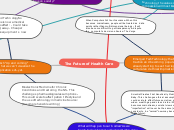av Jiawen Deng för 6 årar sedan
197
Signals
Recent technological advancements in healthcare, including genetically modified babies, smartphone medical devices, and AI-assisted surgeries, present profound ethical and societal challenges.

av Jiawen Deng för 6 årar sedan
197

Mer av detta